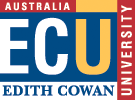COURSE INFORMATION
Disclaimer
This course information may be updated and amended immediately prior to semester. To ensure you have the correct outline, please check it again at the beginning of semester.
| I59 Master of Engineering | ||||||||||||||||||||||||||||||||||||||||||||||||||||||||||||||||||||||||||||||||||||||||||||||||||||||||||||||
The Master of Engineering is a two year (full-time equivalent) course intended to provide graduates with a professional Engineering degree. The course is suitable for people who already have a relevant degree in science or technology and who would like to upgrade to a professional qualification in Engineering, or those with engineering qualifications who would like to change their discipline of specialisation. Various specialisations are available in this course, including Civil Engineering, Computer Systems, Electrical Power, Electronics and Communications, Instrumentation Control and Automation, Mechanical Engineering, and Mechatronics.
The course requires the student to complete a set of units to match the selected specialisation and, in the second year, complete a project report based on a substantial research and/or industry-based project that will run over two semesters.
|
||||||||||||||||||||||||||||||||||||||||||||||||||||||||||||||||||||||||||||||||||||||||||||||||||||||||||||||
| ADMISSION REQUIREMENTS Applicants to this degree must already have completed a Bachelor degree, or equivalent, in a science, technology or engineering related field. Applicants must be able to demonstrate that in the previous degree, or from other prior learning, they have achieved competencies in a selection of the following areas of study to a standard that would normally be required in the first two years of an Australian University Engineering degree:
|
||||||||||||||||||||||||||||||||||||||||||||||||||||||||||||||||||||||||||||||||||||||||||||||||||||||||||||||
| SPECIAL ADMISSION REQUIREMENTS Applicants must provide proof of their previous university studies and the successful completion of a first degree, or equivalent. The applicant must provide details of all units completed and, upon request, full details of units in the above areas. Depending on the chosen specialisation for the Masters degree the required pre-requisites will vary, but it would be expected that prior studies should have covered most of the topics in the above three subject areas.
Where an applicant does not meet all these pre-requisites, additional bridging units may be required as determined by the Course Coordinator. As a result the length of the Course may be extended by one or two semesters. |
||||||||||||||||||||||||||||||||||||||||||||||||||||||||||||||||||||||||||||||||||||||||||||||||||||||||||||||
| COURSE LOCATION This course is available on Joondalup Campus. |
||||||||||||||||||||||||||||||||||||||||||||||||||||||||||||||||||||||||||||||||||||||||||||||||||||||||||||||
| MODE OF STUDY This course is available by Full-time, or Part-time mode. |
||||||||||||||||||||||||||||||||||||||||||||||||||||||||||||||||||||||||||||||||||||||||||||||||||||||||||||||
| MODE OF DELIVERY This course is available in the following mode of delivery - On-campus. |
||||||||||||||||||||||||||||||||||||||||||||||||||||||||||||||||||||||||||||||||||||||||||||||||||||||||||||||
| COURSE STRUCTURE The Master of Engineering is a two year (full time equivalent) award requiring 240 cpts of study. It is composed of 14 x 15-cpt units and a 30-cpt valued Design Project. In the first year 8 units are taken and in the second year 6 units, plus the Design Project which is taken over two semesters. The set of units to be taken depends on the chosen specialisation.
To complete the course the Engineering Practicum unit must also be undertaken. This requires the student to complete a period of 12 weeks full time employment under the supervision of an engineer in an approved work situation. The Engineering Practicum can be undertaken during the break between the first and second years of the course, or at the conclusion of the second year.
|
||||||||||||||||||||||||||||||||||||||||||||||||||||||||||||||||||||||||||||||||||||||||||||||||||||||||||||||
| ||||||||||||||||||||||||||||||||||||||||||||||||||||||||||||||||||||||||||||||||||||||||||||||||||||||||||||||
Last Updated - Higher Education: 3/31/2010 VET: 3/31/2010
